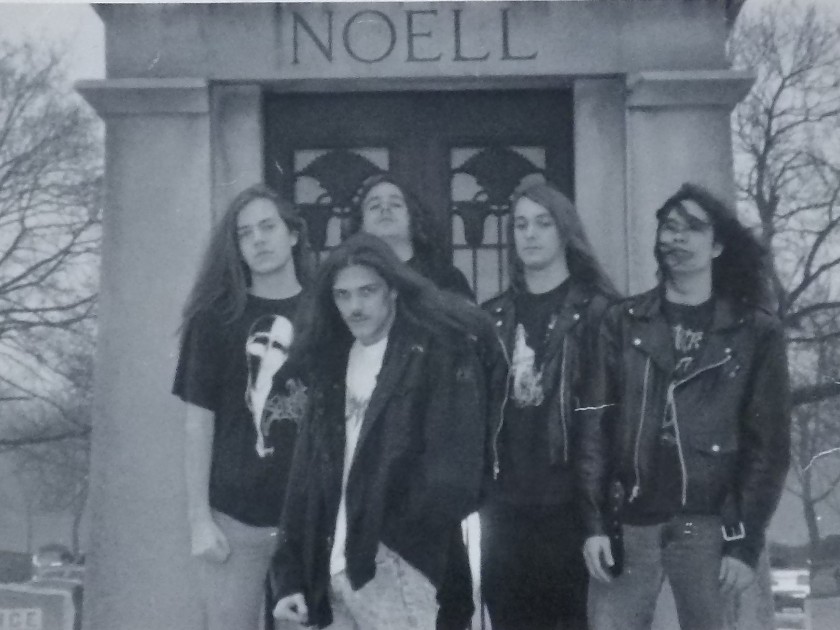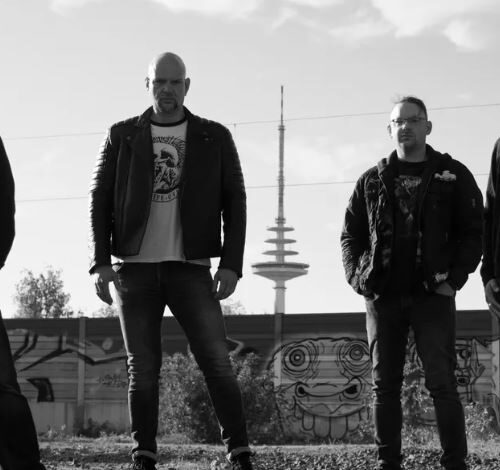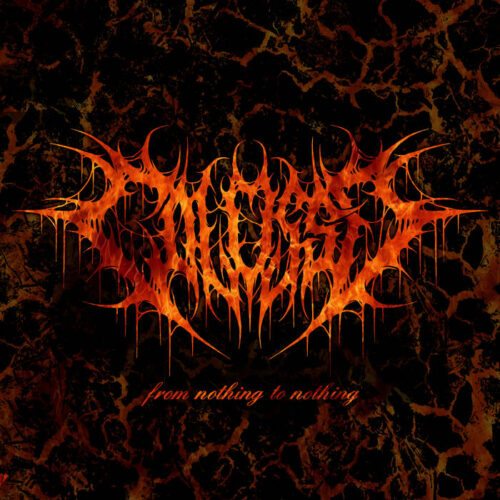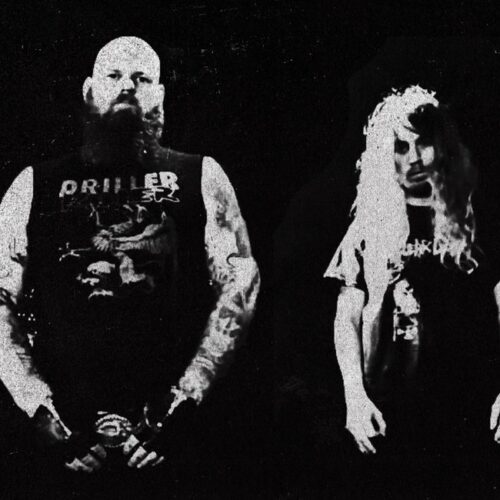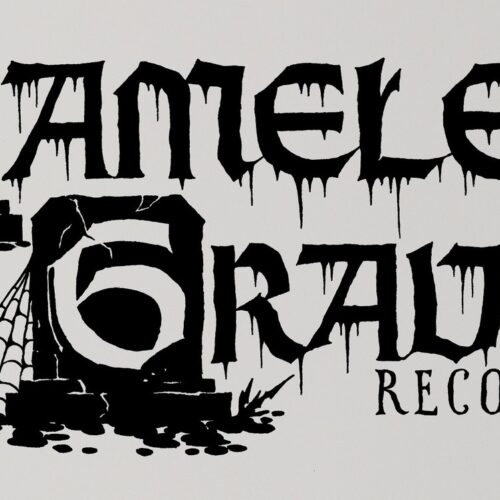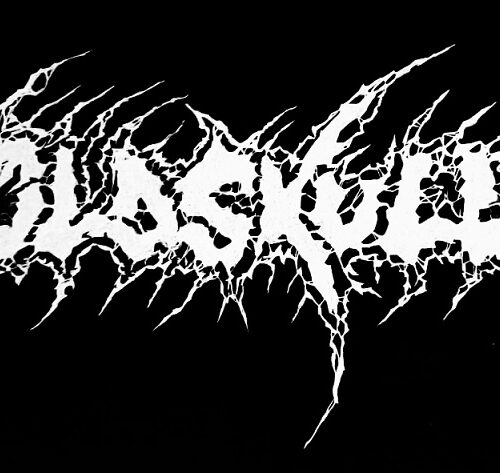Afterlife – Chat
Paul Ritchings was the singer in the death metal band Afterlife, who put an album out on Olympic Records in 1992. Seeing how the band is back together and their album is going to be re-issued, I had this chat with him recently:
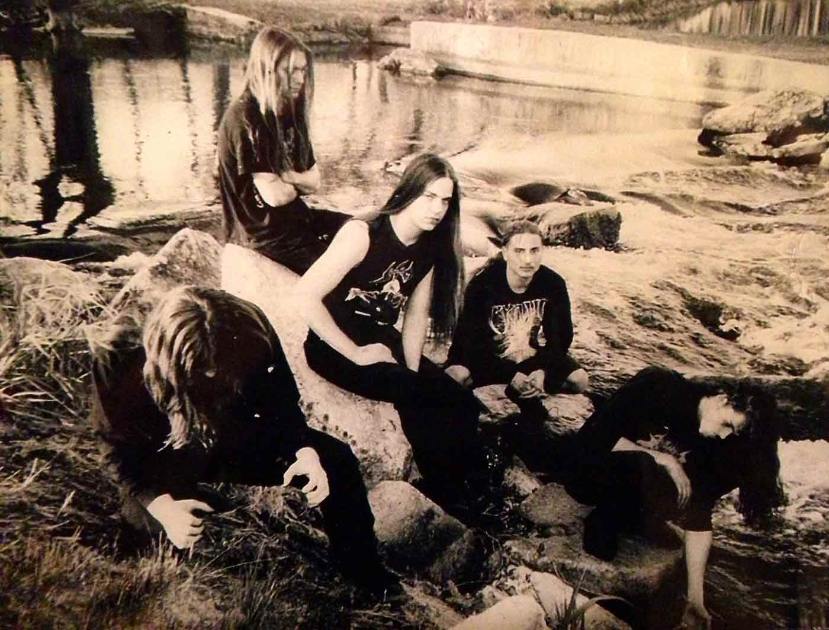
“Paul Ritchings was the singer in the death metal band Afterlife, who put an album out on Olympic Records in 1992. Seeing how the band is back together and their album is going to be re-issued, I had this chat with him recently”
Where were you born and where did you grow up?
PR: I was born in June of ’69 in Point Pleasant, New Jersey and grew up for the most part in South Bend, Indiana.
So what sort of kid were you growing up? Did you have many friends?
PR: Growing up I was a pretty normal kid, I guess. I was always into music (classic/hard rock, heavy metal), art/drawing and being wild little shits with my friends. I was friendly with most people but I really only hung with a handful of them on a regular basis.
Now when did music start to enter your life and what were some of the first bands you heard? Doesn’t have to be metal.
PR: Music has always been a part of my life. I used to listen to my mom’s records and 8-tracks growing up. She was a hippie in her youth and had everything from Zeppelin to Floyd to Deep Purple and even some Sabbath. When I turned 12 in 1983, I started figuring out what types of music appealed to me (metal) and it just got heavier through the coming years.
What would you say some of your favourite metal bands were during this time?
PR: I was into different stuff like Iron Maiden, Ratt, Black Sabbath, Judas Priest, Accept, Motley Crue among others as well as a lot of the stuff I had listened to up to that point. Living where I live in Indiana there weren’t any good record shops at the time. Fortunately, I had a friend growing up whose brother DJ’d a metal show for a radio station in Michigan that had a lot of the more obscure albums that he would dub to tape for me. Through him I heard bands like Slayer, Metallica, Trouble, Cirith Ungol, and a lot of NWOBHM.
So is that what led you to want to hear heavier and faster stuff?
PR: Absolutely. I started going through metal mags looking for new releases and then go to Musicland, Camelot and this record shop that had opened up by Notre Dame called Tracks to dig through all the racks and buy up whatever I could find. Tracks by far had obscure releases like Celtic Frost, Sodom and a lot of the euro stuff that wasn’t easy to find in the other shops. They later became Orbit Records, but now most of their stuff doesn’t even make it to the shelves in-store, it all gets sold online.
So now were they any actual underground stores around you at this time?
PR: Tracks was really the only place to find more underground stuff. Camelot and Musicland took a few years before they carried any kind of Metal Blade, Combat, Roadrunner or Noise records releases.
So did you read any mags like Metal Hammer, Kerrang, Metal Forces, etc?
PR: Metal Hammer and later Metal Maniacs were pretty much my go-to mags. South Bend wasn’t very metal friendly for a while. Eventually, they came around and you could find more mags at some of the local bookstores and supermarkets
So now, did you ever pick up the instrument or were you always just a singer in bands?
PR: I always wanted to play an instrument. I bought a cheap bass from a friend from school but never played it in any band I was in. I play the guitar some and did contribute a few riffs to our album. But from the first band, I joined I was the vocalist. In that first band which was pretty much straight thrash, I basically tried to sound like a cross between Paul Baloff and Mille Petroza. When Afterlife formed about a year and a half later we were death metal so I started working on heavier vocals that felt more appropriate for our style.
So was the first band at all serious? Did you record or release anything?
PR: Lethal Creed wasn’t very serious, we only had one original song called The Fury and we did some covers like Metallica – Whiplash and Hallow’s Eve – Lethal Tendencies. Afterlife was really the only serious band I was involved in. We got together in mid ’91 and after a few months recorded a single to hand out at Milwaukee Metalfest #5 to get our name out there. After a couple more months, we released our ’91 Rehearsal Demo. In the second half of ’92, we had received an offer to release an album through Drowned Productions but decided to wait for a label with better distribution. In hindsight, I wish we would have worked with Dave (Rotten-Chris) back then because some of the bands he released went on to become legends in my opinion. Shortly after that, we got an offer from the fledgeling label Olympic records and decided to sign with them. By the end of the year, Surreality was recorded and released in early ’93.
I wanna backtrack a bit. How did all you guys meet and did you go through many members before you recorded that demo?
PR: George Gregory and I met in early 1990 and we were both getting into a lot of the Roadrunner, Peaceville and Earache stuff that had come out in ’89. We wanted to start a band but there weren’t any serious local musicians that wanted to play death metal at the time. On a side note, the first band I was in ’89 decided they wanted to play white lion poser rock shite and all I could say was good luck with that. I met Chris and Ben Elliott at the beginning of ’91. They had just moved here from Ohio. They saw me wearing my Death – Crusade of Brutality tour shirt and we started talking. I got their number and George called them up one day and we met up. Our first recording was done using a drum machine being we hadn’t found a drummer yet. For the rehearsal demo, the Elliot’s asked a friend (Rob Moore) from Ohio if he wanted to come out and record the demo. He learned and recorded the four songs in a few days. He returned to Ohio and that was the only time we played with him. After that, we secured the services of Dave Ross who had previously played with the Indiana band Thanatopsis. Pete Clemens from Shades of Grey introduced us to his old drummer Dave Horniak first, but nothing came from that meeting. A couple of weeks later, he introduced us to Dave Ross and we started to work on the material that would eventually become the Surreality album.
Now you mentioned earlier you went to the Milwaukee Metalfest to give out tapes to get your name out there. What sort of feedback did you get from that?
PR: To be honest, I didn’t get any. George was handling the mail up until he left the band and Ben took over from there. I never even saw any of the mail at the time. All the tape trading went to benefit George and Ben’s collections which is fine, I got to hear it all anyway.
Fair enough. Now did you attract interest in record labels by sending them the one and only demo you put out?
PR: Thanks really goes to Brad Buldak from Morgue for that. The owner of Olympic asked him about other bands he thought would be worth signing and Brad suggested us. Marty got ahold of us and after sending him a promo pack and talking back and forth on the phone with him, he sent us a contract. There was also the offer from Dave Rotten as well, but we didn’t move on to that offer for whatever reason. I think part of why Brad suggested us was that Ryan Jerzak had recently joined Morgue and Ryan’s best friend Larry Mancini had just joined Afterlife. Both were exceptional guitarists. But I can’t confirm that without asking Brad though.
So now, you ended up going with Olympic Recordings, but I also see it says that a cassette version came out on Grind Core International. Now how established was Olympic Records at the time? I mean I have heard of both labels at the time, but they were in say ever the league of the big indies around at that time.
PR: Olympic was fresh out of the box as far as that goes. I believe we were the 3rd band to be signed by the label. Grind Core really only served to manufacture the physical tapes and CDs. The distribution of the album was through Relativity Records. Initially, the recording was meant to be an EP, but, Relativity didn’t want our debut to be an EP so we went back into Solid Sound Studios to record 3 additional tracks (Deadlights Glare, Shell of a Being and Dreading the Morrow). If you listen you can hear a difference between the 2 sessions. The initial 4 songs had a drier production style and the second session had a more saturated sound to it.
So what was the response like to the release when it was out? Any idea how many copies it sold?
PR: That was kind of an issue with Olympic. They never updated us with any sort of sales information whatsoever. When the album was released there were a few ads in magazines that I saw personally, but I can’t give you any real sales numbers being they were never provided to us. We received a good crowd response from playing live shows. People knew who we were and had heard the album, so I guess that’s good. But it would have been nice to know exactly where we were at sales-wise. (unfortunately, it happened to so many other bands in this time frame too-cf)
I am gonna assume there was not ever any tour or anything? Did they give you any kind of budget to go in the studio?
PR: We did the tour, but they (Olympic) had absolutely nothing to do with it financially or otherwise. The last tour we took part in was the Metal Mania Tour ‘94, which was set up by the late Don Decker (RIP). We earned our spot on the tour by playing a fest he had set up at First Avenue in Minneapolis. How we earned it exactly was because our drummer Dave had quit the band and we didn’t cancel out. We ended up going to Solid Sound and had them isolate the drum tracks and headed to Minneapolis. Chris, Larry and Ben spent most of the day playing along with the drum tracks until it was time to head to the venue. We played the gig and of course between songs you could hear someone yell out “nice drummer”. But because we saw it through Don was cool and reserved a spot for us on the tour. The rest of the shows were usually weekend ventures that we personally paid all expenses for. We didn’t come out of pocket for the studio time but we were never told how much was actually spent for it.
How was the overall response to the release? Did you manage to see many reviews for it at the time?
PR: Only a few, which generally were flattering. It wasn’t until years later that we found reviews via the internet. People were generally kind in their reviews of the album. The main complaint about the album was the overall low level of the recording. It served well in that you could turn it up loud without it distorting, but at low volume, it sounded a bit muffled. I attribute that to the fact that we weren’t told when the mix down happened so we weren’t present for it. I think it was Olympic’s way of keeping their cost down and getting it done quick. That’s why I think that the sound difference is so noticeable between the 2 recording sessions.
Now obviously you didn’t release anything after this release. Did you have any other songs ready to go before the band broke up?
PR: We added a few songs to our setlist that weren’t on the album for live shows, and a few others that were in various stages of being written. We are hoping to get together in the near future to record some for a reissue that we are working with Vic Records to release. They are a couple that we performed live but never committed to an actual recording titled The Spiraling Souls and (Through) Endless Waves of Astral Sky. We may record an entirely new track exclusive for the reissue from old and new riffs if all works out well.
So did Olympic approach you at some point for a follow-up record or did you guys break up before that happened?
PR: We were pretty dissatisfied with the labels lack of backing and hands-off approach. We loved touring, hanging out with other bands and playing for and meeting the fans. Nevertheless, by mid ’95 the band became inactive. The label never pushed for a new release, so our intention was to allow the contract to lapse and go from there. And then life interjected and we all were in different places which made getting anything done near impossible.
How did you guys come up with the name Afterlife?
PR: There were 2 sources that I derived the band name from. The first stemmed from my love of the 1986 FTT demo by Sacrifice. The second was from a lyric in the Necrophagia song Beyond and Back off of the “Seasons of the Dead” album. I wanted to use the name for the thrash band I was in ’89, but 3/4 of the band thought Lethal Creed was a better name so I was outvoted and I held on to it for a future endeavour.
Cool. So now what did you do with yourself after the band broke up?
PR: Ha! I had a couple of kids and worked for the state for a while. Afterlife would get together occasionally to jam and we wanted to do something more but it just didn’t happen. Chris and Ben took to teaching music for years. Larry Mancini started a business in Chicago and Tim Bowman went the family route as well. Eventually, I missed jamming and writing material and got together with George and Aero for a short run at breathing new life into Sephirith which produced 3 songs for an EP that was never released. I was with a band called The Arsonist’s Daughter for a couple of years as well. Ben joined Stone Magnum with Dean Tavernier of Skullview and released a couple of albums with them. Most recently, I joined Chicago’s Fate to Suffer and have been working on a release to come out sometime this year.
Now, what kind of music is Fate Suffer?
PR: Fate to Suffer has been a mix of death metal with some thrash elements so far. For my part, it’s total death! With the addition of our new guitarist Mark Piotrowski who was in Experiment from Chicago, we are looking to develop the style further and see where it leads. I really don’t like to say we are this or that style because bands evolve and sometimes become something different than they were in the beginning. Before I joined the band, FTS had released an Ep independently. The previous vocalist wasn’t what they were really looking for. After they parted ways with him the drummer Tim, (who played with Afterlife in the end) contacted me about joining. And after 8 years of inactivity, I accepted. I went into The Nook Studios last year and re-recorded the vocals for the 2019 EP after rewriting the lyrics of the old singer, being there wasn’t much to them. The redux is available on most of the streaming services as well as Bandcamp for anyone who wants to give it a listen.
Now earlier you mentioned Vic Records is gonna be re-issuing the Afterlife debut album. How did this come about?
PR: I became friends with Johan Pettersen from Norway, who works for Vic Records through the Afterlife Facebook page. He messaged me asking if we had any interest in doing a reissue. We saw some of the bands they had worked with already and felt it would be an honour and privilege to work with them to do the reissue.
Any bonus stuff on it and when can we expect it out?
PR: We hope to be able to fill it with as many extras as we can fit. It will most likely contain the album, the demo materials, a full live show in Charlotte, N. C. (Duane Morris (hi Duane-cf) recorded with a handheld recorder) and some unreleased material as well. We wanted to get a hold of the original reels and have the album remixed/remastered but unfortunately, no one can seem to get in contact with Marti from Olympic to see if the reels even exist anymore.
So now, is the band back together at all in any way shape or form?
PR: At this point in time we want to get the reissue out, though covid really threw a wrench into the works there. We haven’t made plans for a return but who knows where it could lead.
Last couple of questions have you looked at how much original copies go for on places like eBay and the like?
PR: I have seen prices for the album on eBay. It’s pretty outrageous. Honestly, if there are any “new” copies for purchase they are probably bootlegs. I know of one company from Germany that had booted it and while it’s flattering that someone liked it enough to do that, it’s not cool to cut us out of the deal bro! Ha!
Any YouTube videos out there of the band?
PR: Not that I’m aware of. I did have a nice video I obtained from Pat Ranieri of a show we played in Biloxi, Mississippi from ’94. Unfortunately, I lost almost everything I owned in a fire and I’m not sure if I still have it or not. (I haven’t had the heart to go through what I was able to salvage from that nightmare though. But I’ll take a look and see if I can find it. If I do I’ll post it on YouTube for sure and let you know. What I do know, I lost all of my cassettes, about 1000 demos and albums collected from the time I was in high school, some shirts, vinyl, memorabilia and an assload of VHS/DVD, action figures, etc. Pretty heartbreaking when it happened to say the least.)
That totally sucks. Paul how many bands were you in my man?
PR: In ’89, I was in Lethal Creed, which was more of a thrash band that never really went anywhere. Afterlife formed in the mid-1990. After George Gregory departed in ’92 he formed a band called Sephiroth. They released a demo that year with Rob Elliott from Necrodemon / Hellgrind on vocals. In ’93, George was prepared to go into the studio again but had parted ways with Rob by that time. He asked if I would be interested and I was into the idea so we went into the studio and recorded the ’93 Moon, Sun, Heavens and Earth Ep that was released through Pagan recs. (Poland) just a few months after the recording of the Afterlife album. Sephiroth didn’t play out live and fell by the wayside after that ep. Afterlife toured through ’93 – ’95 including a tour with Incantation, Anal Cunt, Morpheus Descends and Gutted in ’94. In ’95 the band went on hiatus being a couple of our members lived in Chicago with the rest living in Elkhart, Indiana. It became difficult for everyone to get together at the same time so we became inactive. We would get together and jam but weren’t trying to keep the band going. In 2004, George and I started jamming again in a new incarnation of Sephiroth with Aero Charles formerly of Necrodemon on drums. We recorded a 3-song ep that was never released. We jammed together but George started dealing with carpal tunnel and had to hang it up. In 2008, Aero asked if I would join his band called The Arsonist’s Daughter. We played a lot of local shows in the South Bend local scene including a few local fests with bands like Suffocation, Macabre, Decrepit Birth and the Faceless. In 2010, I departed the band and decided I was finished being in bands. But nothing seems to be forever. In 2019 I was approached by Tim Bowman who had played the drums for Afterlife in ’94-“95, and Justin Jurgevich asking if I would like to sing for their new band Fate To Suffer. We were able to play a few shows before Covid kicked in and screwed us for the rest of 2020. We recently added Mark Piotrowski on lead guitar and are looking forward to writing some new material to record our first album later this year.
Paul horns up for doing this chat with me, any last words to wrap this up the floor is yours.
PR: Cheers to you for your years of dedication to the scene and keeping the spirit alive! Thanks to everyone who has been there for us, came to our shows, got smashed with us and supported the band even to this day! You all are what makes the metal world go around! HAIL!
